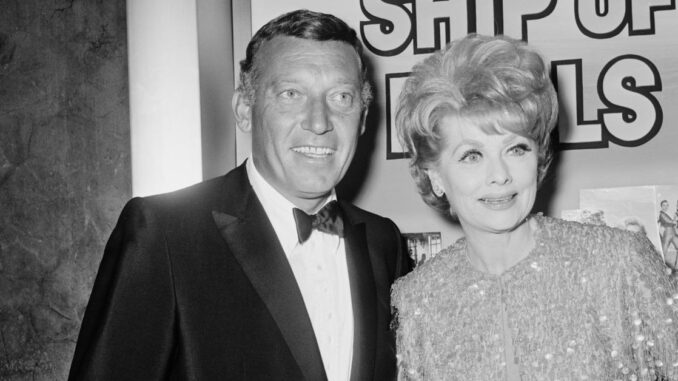
Born in August 6, 1911, the legendary actress, comedian, singer and producer Lucille Ball was born in Jamestown, NY. After her father died when she was only three, she and her mother, who was pregnant with Lucy’s brother Fred at the time, moved to a summer resort village on Chautauqua Lake to live with her grandparents, as well as her aunt and uncle and a cousin who would later become a producer on several of Lucy’s shows. When she was only 14, Lucy started dating a local hoodlum who was in his twenties, and Lucy’s mother exploited her desire to be in show business to separate the two lovebirds, sending her to the John Murray Anderson School of the Arts, where Bette Davis was also a student, in 1926.
While her classmate Bette Davis received raves, the school complained in a letter to Ball’s mother that she was “too shy.” This only motivated her, and she was soon seen in comedies such as Look Who’s Laughing (1941) and The Fuller Brush Girl (1950), and as a sidekick to the Marx Brothers in Room Service (1938).
As she worked her way up Hollywood’s ladder, radio welcomed her with open arms. First appearing as a supporting player on Jack Haley’s The Wonder Show, Ball graduated to guest appearances on The Abbott and Costello Show, Duffy’s Tavern, The Kraft Music Hall and The Lux Radio Theatre.
Her radio appearances were not always for laughs, as she appeared multiple times in dramatic roles on radio’s greatest series of mystery, Suspense. One of the Suspense episodes costarred her real-life husband Desi Arnaz.
In the summer of 1948 she accepted the role of Liz Cooper, a zany housewife who found herself facing comical situations, in the radio series My Favorite Husband. Her character’s husband, George Cooper, was played by veteran actor Richard Denning. In 1950, CBS offered to adapt the popular radio program to television.
Unable to convince network brass to let Arnaz play her husband on the television series, she instead performed a vaudeville show with Arnaz that was so popular with audiences that she was given creative control over her own situation comedy series, I Love Lucy. Here, she and Arnaz pioneered the three-camera technique now considered the standard in filming television sitcoms. She also became the first woman to own a television studio when she headed Desilu Productions.
Paid $50 a week for her role as an uncredited actress in Top Hat (1935), Ball now graduated to $3,500 per episode for I Love Lucy along with part ownership of the mega-series.
Behind the camera, the relationship between Ball and Arnaz was all business until they retired to their homestead between seasons. When they were first married in 1940, Arnaz had to give his wife-to-be a ring from a drugstore because all of the jewelry stores were closed. She kept it for the rest of their marriage. In 1960, Ball and Arnaz shocked fans when they divorced just two months after filming the final episode of The Lucy-Desi Comedy Hour. The two remained close friends until his death in 1986, even though both would go on to remarry. Both made it clear in multiple interviews that each was the love of the other’s life.
